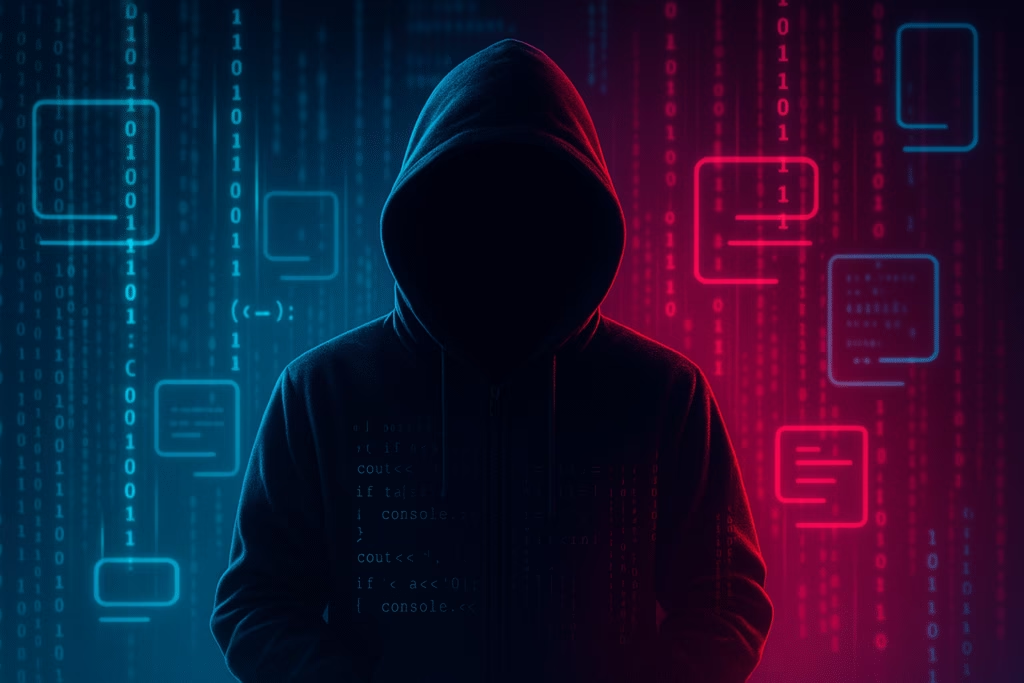For decades, hackers were seen as the digital underworld’s mythic figures — brilliant, rebellious, and often misunderstood. They were the late-night coders, the basement cryptographers, the people who could make machines dance with nothing but a command line and caffeine.
But hacker culture has evolved. The hoodie-and-black-terminal stereotype feels outdated now, replaced by something more complex, more public, and — in many ways — more powerful. Some point even say there has been a hacker culture decline in recent years.
What once lived on obscure IRC channels and underground forums has spilled into mainstream life, reshaped by geopolitics, commercialization, and even social media. BitFern regularly covers the evolution of digital subcultures — from hacker ethics to the new intersections of cybersecurity, AI, and creativity.
Here are three ways hacker culture has fundamentally changed in recent years — and what those shifts say about the future of cybersecurity, privacy, and digital rebellion.
1. From Counterculture to Corporate Culture
Hackers used to operate outside the system. Today, they are the system.
The same curiosity that once led hackers to break into networks now drives them to build the defenses that protect them. Ethical hacking — or “red teaming” — has gone from a fringe hobby to a formal profession with six-figure salaries and HR benefits.
Tech giants like Google, Microsoft, and Apple now run official bug-bounty programs. Governments hire white-hat hackers to run simulated cyberattacks. Even the Pentagon pays independent researchers who find vulnerabilities in its systems.
In short: hacking has been institutionalized.
This shift doesn’t mean the rebellious spirit is gone — it’s just been redirected. Instead of exposing flaws for chaos or fame, modern hackers expose flaws for accountability and profit. The “hacktivist” ethos survives, but it now shares space with compliance reports, NDAs, and performance reviews.
The line between hacker and engineer has blurred. The underground is now part of the org chart.
But this mainstreaming comes with tension. As cybersecurity becomes big business, some argue that the soul of hacker culture — its DIY ethos, its defiance of authority — risks being diluted. When your curiosity is measured by KPIs, rebellion turns into a deliverable.
Still, one truth remains: curiosity will always outpace policy. And that’s why the hacker mindset continues to thrive, even in a corporate world.
2. The Rise of the Collective Hacker
The lone-wolf hacker is dying.
In its place: the collective operator — groups that move with coordination, purpose, and shared ideology.
In the early 2000s, hacking was often a solo pursuit. A single person with technical skill and time could cause digital mayhem. But modern networks, cloud infrastructures, and global supply chains have made solo hacking inefficient. Now, collaboration is power.
We’ve seen the rise of cyber-collectives like Anonymous, state-aligned groups like APT28 or Lazarus, and even decentralized ransomware gangs that function more like startups than anarchists.
What unites them isn’t just code — it’s narrative. Modern hackers operate as storytellers as much as technicians. They leak documents to influence politics, deface websites to spread ideology, and drop ransomware notes written like press releases.
Hacking has become performative. Every breach is both a data event and a PR event. The message matters as much as the exploit.
Even ethical hacking has absorbed this collectivist spirit. Open-source security projects, vulnerability databases, and Discord-based hacker communities thrive on transparency and collaboration. The underground’s energy has shifted from secrecy to community — from hiding in IRC channels to livestreaming CTF competitions on Twitch.
The internet didn’t just connect machines. It connected hackers to each other — and in doing so, it turned chaos into coordination.
3. From Disruption to Influence
Old-school hackers broke things.
New-school hackers shape things.
The original hacker ethos — “information wants to be free” — was about dismantling systems. The modern version is about bending systems. Whether through social engineering, media manipulation, or AI exploitation, the modern hacker’s power lies less in technical sabotage and more in narrative control.
Cyber operations are now geopolitical theater. State-sponsored hackers leak intelligence to sway elections. Hacktivists weaponize data leaks to expose corporations. Influencers with just enough coding knowledge repackage cybercrime news into viral content that blurs fact and fiction.
The battlefield has shifted from servers to sentiment.
A defaced website in 2005 might have reached a few thousand people. A well-timed data leak in 2025 can move global markets, crash reputations, or spark international incidents.
This new phase of hacker culture isn’t just about breaking in — it’s about broadcasting out. The modern hacker is part technologist, part propagandist, part digital artist.
And perhaps that’s the biggest change of all: hacking isn’t just a toolset anymore. It’s a language. One that governments, corporations, and creators all speak — whether they admit it or not.
Bonus Shift: The Hacker Aesthetic Goes Mainstream
Walk into a design studio or streetwear shop, and you’ll see hacker aesthetics everywhere: terminal fonts, glitch effects, cyberpunk minimalism. What used to represent digital rebellion is now a marketing aesthetic.
From fashion to film to fintech branding, the hacker look has been sanitized and monetized — proof that what begins as subversion often ends as style.
Even so, the aesthetic still carries cultural weight. In an era when AI threatens originality and surveillance is normalized, the hacker remains a symbol of agency — someone who can rewrite the system rather than be rewritten by it.
The Future of Hacker Culture
Hacker culture is no longer the underground movement it once was — but it’s not dead, either. It’s evolved.
The hackers of today aren’t just coders or criminals; they’re researchers, activists, security engineers, and digital philosophers. The motivations have changed, but the core impulse — to understand and reshape systems from the inside out — endures.
The future hacker won’t just exploit vulnerabilities in networks. They’ll exploit vulnerabilities in algorithms, AI models, and public narratives. They’ll navigate a world where data and perception are equally hackable.
And as technology becomes more opaque, the hacker’s role as the truth-finder — the one who peels back the layers — will only grow more important.
Because at its heart, hacker culture was never about chaos.
It was about curiosity — and curiosity still rules the machine.



